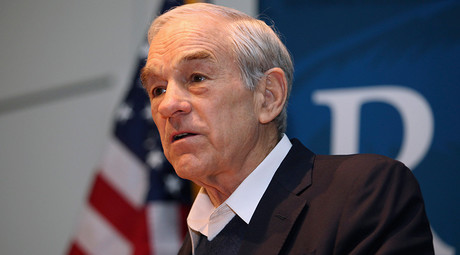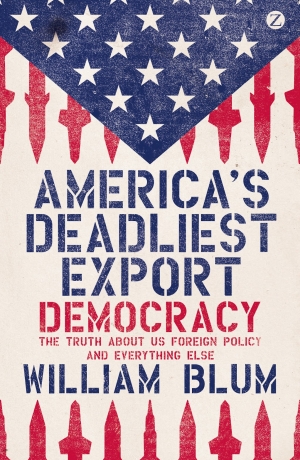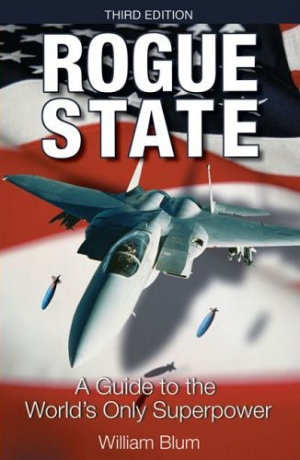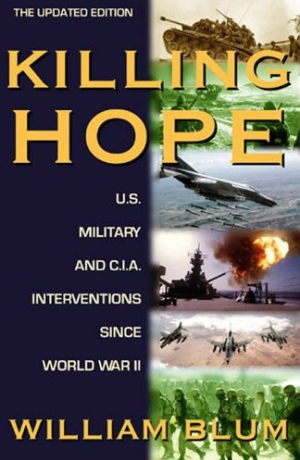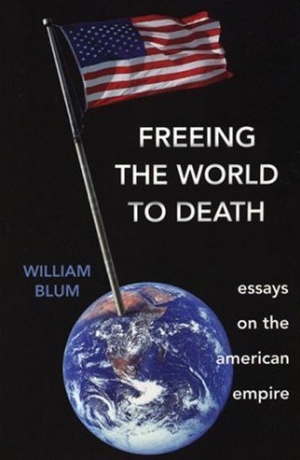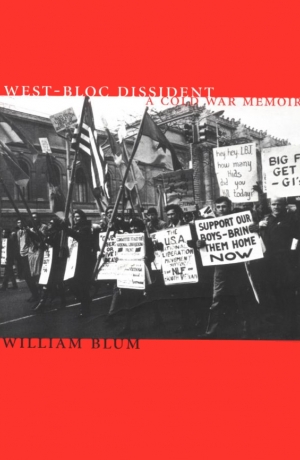By William Blum – Published November 3rd, 2015
Are you confused by the Middle East? Here are some things you should know. (But you’ll probably still be confused.)
- The
US, France, Saudi Arabia, Turkey, Qatar, and the Gulf monarchies have
all in the recent past supported al Qaeda and/or the Islamic State
(ISIS) with arms, money, and/or manpower.
- The first
example of this was in 1979 when the United States began covert
operations in Afghanistan, six months before the Russians arrived,
promoting Islamic fundamentalism across the southern tier of the Soviet
Union against “godless communism”. All the al-Qaeda/Taliban shit then
followed.
- In addition to Afghanistan, the United States
has provided support to Islamic militants in Bosnia, Kosovo, Libya, the
Caucasus, and Syria.
- The United States overthrew the
secular governments of Afghanistan, Iraq, and Libya and is trying to do
the same with Syria, thus giving great impetus to the rise of ISIS. Said
Barack Obama in March of this year: “ISIS is a direct outgrowth of
al-Qaeda in Iraq that grew out of our invasion. Which is an example of
unintended consequences. Which is why we should generally aim before we
shoot.”
- More than a million refugees from these wars of
Washington are currently over-running Europe and North Africa. God Bless
American exceptionalism.
- The Iraqi, Syrian and Turkish
Kurds have all fought against ISIS, but Turkey – close US ally and
member of NATO – has fought against each of them.
- Russia,
Iran, Iraq, and Lebanese factions have each supported the Syrian
government in various ways in Damascus’s struggle against ISIS and other
terrorist groups, including the (much celebrated but seldom seen)
“moderate” ones. For this all four countries have been sharply
criticized by Washington.
- The United States has bombed
ISIS in Syria, but has used the same occasions to damage Syria’s
infrastructure and oil-producing capacity.
- Russia has bombed ISIS in Syria, but has used the same occasions to attack Syria’s other enemies.
- The
mainstream media almost never mentions the proposed Qatar natural-gas
pipelines – whose path to Europe Syria has stood in the way of for years
– as a reason for much of the hostility toward Syria. The pipelines
could dethrone Russia as Europe’s dominant source of energy.
- In
Libya, during the beginning of the 2011 civil war, anti-Gaddafi rebels,
many of whom were al-Qaeda affiliated militias, were protected by NATO
in “no-fly zones”.
- US policy in Syria in the years
leading up to the 2011 uprising against Syrian leader Bashar al-Assad,
which began the whole current mess, was designed to promote
sectarianism, which in turn led to civil war with the goal of regime
change.
- US Secretary of State John Kerry declared on
October 22 that in resolving Syria’s civil war the country “should not
be broken up, that it must remain secular, and that Syrians should
choose their future leader.” (All of which actually describes Syria
under Assad.) Then Kerry said: “One thing stands in the way of being
able to rapidly move to implement that, and it’s a person called Assad,
Bashar Assad.”
Why does the government of the United States hate Syrian president Bashar al-Assad with such passion?
Is
it because, as we’re told, he’s a brutal dictator? But how can that be
the reason for the hatred? It would be difficult indeed to name a brutal
dictatorship of the second half of the 20th Century or of the 21st
century that was not supported by the United States; not only supported,
but often put into power and kept in power against the wishes of the
population; at present the list would include Saudi Arabia, Honduras,
Indonesia, Egypt, Colombia, Qatar, and Israel.
The United States, I
suggest, is hostile to the Syrian government for the same reason it has
been hostile to Cuba for more than half a century; and hostile to
Venezuela for the past 15 years; and earlier to Vietnam, Laos and
Cambodia; and to Dominican Republic, Uruguay, and Chile; and so on
continuing through the world atlas and history books.
What these
governments have had in common can be summarized in a single word –
independence … independence from American foreign policy; the refusal to
be a client state of Washington; the refusal to be continuously hostile
to Washington’s Officially Designated Enemies; insufficient respect and
zeal for the capitalist way of life.
Democratic Socialism
The
candidacy of Bernie Sanders, a “democratic socialist”, for the US
presidency has produced an unprecedented barrage of discussion in the
American media about just what is this thing called “socialism”. Most of
the discussion centers around the question of government ownership and
control of the economy versus private ownership and control. This is, of
course, a very old question; the meat and potatoes of the Cold War
ideological competition.
What’s markedly different now is that a
few centuries of uninhibited free enterprise have finally laid painfully
bare the basic anti-social nature of capitalism, forcing many of even
the most committed true believers to concede the inherent harm the
system brings to the lives of all but the richest.
But regardless
of what the intellects of these true believers tell them, they still
find it very difficult emotionally to completely cut the umbilical cord
to the system they were carefully raised to place the greatest of faith
in. Thus, they may finally concede that we have to eliminate, or at
least strictly minimize, the role of the profit motive in health care
and education and maybe one or two other indispensable social needs, but
they insist that the government should should keep its bureaucratic
hands off everything else; they favor as much decentralization as
possible.
The most commonly proposed alternative to both
government or private control is worker-owned cooperatives or publicly
owned enterprises managed by workers and consumer representatives.
Sanders has expressed his support for worker-owned cooperatives.
There
is much to be said about such systems, but the problem I find is that
they will still operate within a capitalist society, which means
competition, survival of the fittest; which means that if you can’t sell
more than your competitors, if you can’t make a sufficient net profit
on your sales, you will likely be forced to go out of business; and to
prevent such a fate, at some point you may very well be forced to do
illegal or immoral things against the public; which means back to the
present.
You cannot follow the mass media without being confronted
every day with story after story of one corporation or another trying
to swindle the public in one way or another; the latest egregious case
being that of the much revered Volkswagen, recently revealed to have
manipulated the measurement of the car’s pollution emission. The fact
that half of the company’s Supervisory Board – responsible for
monitoring the Management and approving important corporate decisions –
consists of employee representatives elected by the employees did not
prevent this egregious fraud; the company is still obliged to strive to
maximize profit and the firm’s stock-market value. It’s the nature of
the corporate beast within a capitalist jungle.
Only removal of
the profit motive will correct such behavior, and also keep us from
drowning in a sea of advertising and my phone ringing several times each
day to sell me something I don’t need and which may not even exist.
The
market. How can we determine the proper value, the proper price, of
goods and services without “the magic of the marketplace”? Let’s look at
something most people have to pay for – rent. Who or what designed this
system where in 2015 11.8 million households in the US are paying more
than 50 percent of their income to keep a roof over their head, while
rent is considered “affordable” if it totals some 30 percent or less of
one’s income. What is the sense of this? It causes more hardship than
any other expense people are confronted with; all kinds of important
needs go unmet because of the obligation to pay a huge amount for rent
each month; it is the main cause of homelessness. Who benefits from it
other than the landlords? What is magical about that?
Above and
beyond any other consideration, there is climate change; i.e., survival
of the planet, the quality of our lives. What keeps corporations from
modifying their behavior so as to be kinder to our environment? It is of
course the good old “bottom line” again. What can we do to convince the
corporations to consistently behave like good citizens? Nothing that
hasn’t already been tried and failed. Except one thing. Unmentionable in
a capitalist society. Nationalization. There, I said it. Now I’ll be
getting letters damning me as an “Old Stalinist”.
But
nationalization is not a panacea either, at least for the environment.
There’s the greatest single source of environmental damage in the world –
The United States military. And it’s already been nationalized. But
doing away with private corporations will reduce the drive toward
imperialism sufficiently that before long the need for a military will
fade away and we can live like Costa Rica. If you think that would put
the United States in danger of attack, please tell me who would attack,
and why.
Most Americans, like other developed peoples, worship the
capitalism they were raised with. But do they? See the chapter in my
book
Rogue State: A Guide to the World’s Only Superpower: “
The United States invades, bombs, and kills for it but do Americans really believe in free enterprise?” Written in 2000/2005, the examples given in the chapter may need some updating, but the ideas expressed are as valid as ever.
Nationalization,
hand-in-hand with a planned society, would of course not preclude
elections. On the contrary, we’d have elections not ruled by money. What
a breath of fresh air. Professor Cornel West has suggested that it’s
become difficult to even imagine what a free and democratic society,
without great concentrations of corporate power, would look like, or how
it would operate.
Who are you going to believe? Me or Dick Cheney?
I’ve
spent about 30 years compiling the details of the criminal record of US
foreign policy into concise lists, and I’m always looking for suitable
occasions to present the information to new readers. The new book by
Dick Cheney and his adoring daughter is just such an occasion.
“We
are, as a matter of empirical fact and undeniable history, the greatest
force for good the world has ever known. … security and freedom for
millions of people around the globe have depended on America’s military,
economic, political, and diplomatic might.” – Dick Cheney and Liz Cheney, “Why the world needs a powerful America”
Well … nothing short of a brain and soul transplant would change the
welt anschauung
of Dr. Strangelove and his carefully-conditioned offspring, but for all
of you out there who still live in a world of facts, logic, human
rights, and human empathy, here’s the ammunition to use if you should
happen to find yourself ensnared in the embrace of the likes of the
Cheney reptiles (including mother Lynne who once set up a website solely
to attack me and seven others for holding a teach-in on September 18,
2001 in which we spoke of US foreign policy as the main provocation of
what had happened exactly a week earlier.)
These are the lists:
Since the end of World War 2, the United States has:
- Attempted to overthrow more than 50 foreign governments, most of which were democratically-elected.
- Dropped bombs on the people of more than 30 countries.
- Attempted to assassinate more than 50 foreign leaders.
- Attempted to suppress a populist or nationalist movement in 20 countries.
- Grossly interfered in democratic elections in at least 30 countries.
- Plus
… although not easily quantified … more involved in the practice of
torture than any other country in the world … for over a century … not
just performing the actual torture, but teaching it, providing the
manuals, and furnishing the equipment.
Open Letter to the War Politicians of the World
Jürgen
Todenhöfer is a German journalist and former media manager; from 1972
to 1990 he was a member of parliament for the Christian Democrats (CDU).
He was one of Germany’s most ardent supporters of the US-sponsored
Mujahideen and their guerrilla war against the Soviet intervention in
Afghanistan. Several times he traveled to combat zones with Afghan
Mujahideen groups. After 2001 Todenhöfer became an outspoken critic of
the US interventions in Afghanistan and Iraq. He has published several
books about visits he made to war zones. In recent years he twice
interviewed Syria’s President Bashar al-Assad and in 2015 he was the
first German journalist to visit the ‘Islamic State’.
Dear Presidents and Heads of Governments!
Through
decades of a policy of war and exploitation you have pushed millions
people in the Middle East and Africa into misery. Because of your
policies refugees have to flee all over the world. One out every three
refugees in Germany comes from Syria, Iraq and Afghanistan. From Africa
comes one out of five refugees.
Your wars are also the cause of
global terrorism. Instead of some 100 international terrorists like 15
years ago, we now are faced with more than 100,000 terrorists. Your
cynical ruthlessness now strikes back at us like a boomerang.
As
usual, you do not even consider to really change your policy. You care
only about the symptoms. The security situation gets more dangerous and
chaotic by the day. More and more wars, waves of terror and refugee
crises will determine the future of our planet.
Even in Europe,
the war will one day knock again at Europe’s door. Any businessman that
would act like you would be fired or be in prison by now. You are total
failures.
The peoples of the Middle East and Africa, whose
countries you have destroyed and plundered and the people of Europe, who
now accommodate the countless desperate refugees, have to pay a high
price for your policies. But you wash your hands of responsibility. You
should stand trial in front of the International Criminal Court. And
each of your political followers should actually take care of at least
100 refugee families.
Basically, the people of the world should
rise up and resist you as the warmongers and exploiters you are. As once
Gandhi did it - in nonviolence, in ‘civil disobedience’. We should
create new movements and parties. Movements for justice and humanity.
Make wars in other countries just as punishable as murder and
manslaughter in one’s own country. And you who are responsible for war
and exploitation, you should go to hell forever. It is enough! Get lost!
The world would be much nicer without you.
– Jürgen Todenhöfer
Plus ça change, plus c’est la même chose
The
annual vote in the United Nations General Assembly on the resolution
which reads: “Necessity of ending the economic, commercial and financial
embargo imposed by the United States of America against Cuba” was just
held. This year set a new record for “yes” votes, with the addition of
the Marshall Islands and Palau (heretofore each voting “no” or
abstaining) and Micronesia (heretofore abstaining). All three countries
had established diplomatic relations with Cuba earlier this year, which
of course the United States had also done, but without any change in
Washington’s vote. Here is how the vote has gone in the past (not
including abstentions):
| Year | Votes (Yes-No) | No Votes |
|---|
| 1992 | 59-2 | US, Israel |
| 1993 | 88-4 | US, Israel, Albania, Paraguay |
| 1994 | 101-2 | US, Israel |
| 1995 | 117-3 | US, Israel, Uzbekistan |
| 1996 | 138-3 | US, Israel, Uzbekistan |
| 1997 | 143-3 | US, Israel, Uzbekistan |
| 1998 | 157-2 | US, Israel |
| 1999 | 155-2 | US, Israel |
| 2000 | 167-3 | US, Israel, Marshall Islands |
| 2001 | 167-3 | US, Israel, Marshall Islands |
| 2002 | 173-3 | US, Israel, Marshall Islands |
| 2003 | 179-3 | US, Israel, Marshall Islands |
| 2004 | 179-4 | US, Israel, Marshall Islands, Palau |
| 2005 | 182-4 | US, Israel, Marshall Islands, Palau |
| 2006 | 183-4 | US, Israel, Marshall Islands, Palau |
| 2007 | 184-4 | US, Israel, Marshall Islands, Palau |
| 2008 | 185-3 | US, Israel, Palau |
| 2009 | 187-3 | US, Israel, Palau |
| 2010 | 187-2 | US, Israel |
| 2011 | 186-2 | US, Israel |
| 2012 | 188-3 | US, Israel, Palau |
| 2013 | 188-2 | US, Israel |
| 2014 | 188-2 | US, Israel |
| 2015 | 191-2 | US, Israel |
Each fall the UN vote is a welcome reminder that the world has not
completely lost its senses and that the American empire does not
completely
control the opinion of all other governments. The real reason for
Washington’s eternal hostility toward Cuba has not changed since the
revolution in 1959 – The fear of a good example; the fear of an
alternative to the capitalist model; a fear that has been validated
repeatedly over the years as many Third World countries have expressed
their admiration and gratitude toward Cuba.
How the embargo began:
On April 6, 1960, Lester D. Mallory, US Deputy Assistant Secretary of
State for Inter-American Affairs, wrote in an internal memorandum: “The
majority of Cubans support Castro … The only foreseeable means of
alienating internal support is through disenchantment and disaffection
based on economic dissatisfaction and hardship. … every possible means
should be undertaken promptly to weaken the economic life of Cuba.”
Mallory proposed “a line of action which … makes the greatest inroads in
denying money and supplies to Cuba, to decrease monetary and real
wages, to bring about hunger, desperation and overthrow of government.”
Later that year, the Eisenhower administration instituted its suffocating embargo against its everlasting enemy.
Nothing
of any real importance has changed recently. Guantánamo Prison still
exists in all its imperialist beauty and torture. The US has not
renounced its “regime-change” policies toward Cuba. Not a penny of
Cuba’s near-trillion-dollar lawsuit for compensation has been paid.
Washington has recently threatened to revoke the tax exempt status of
IFCO/Pastors for Peace, one of the most respected and experienced Cuba
advocacy groups. I still can’t go to Cuba as a tourist, or to present a
book of mine at a Cuban Book Fair (for which I’ve been blocked in the
past). And the United States still does not relax its death grip on the
embargo, including continuing to prohibit the sale of medicines to Cuba.
A note to readers
A number of you have remarked to me about
Killing Hope
being unavailable in stores and, usually, from Amazon, and often from
myself. This is because one of the book’s publishers, Common Courage
(Maine), and its editor Greg Bates, have blocked publication and
distribution of the book by a new US publisher. Common Courage is
essentially out of business but refuses to face up to the fact. Bates
stole a royalty payment sent to me by my British publisher via Common
Courage. This theft, among other things, nullified my contract with
Common Courage. It’s complicated, but I feel obliged to offer some
explanation to those of you who have been unable to find a copy of the
book ...
Notes
Any
part of this report may be disseminated without permission, provided
attribution to William Blum as author and a link to this website are
given.



